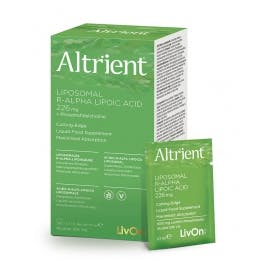How to Avoid the Flu
Written by: Jacqueline Newson BSc (Hons) Nutritional Therapy
With flu cases rising across the UK and Europe and hospitals experiencing increasing strain, staying healthy is more important than ever. Flu season—already challenging—is exacerbated by colder temperatures, less sunlight, and the pressures of modern life that weaken immune defenses. At this time of year the likelihood of catching the flu increases significantly and surprisingly this is not because there are more bugs around but because we spend more time inside so viruses are much more easily spread. Other factors also play a role:
Temperature & humidity
Cold and dry conditions create an environment that supports the survival and transmission of respiratory viruses. Flu viruses are known to be more stable and infectious in cold, dry air, contributing to higher rates of infection during winter.
Your Immune Response
Low temperatures affect your immune system’s ability to respond to respiratory viruses. Exposure to cold air can impair immune function in the nasal passages, making individuals more susceptible to infections. Additionally, reduced vitamin D levels due to limited sunlight in winter may impair immune function.
How to Prepare For Viruses that Will Inevitably Come Your Way
As flu cases continue to rise, now is the time to reinforce your immune defenses. By prioritizing nutrient-rich foods, optimizing your gut health, and maintaining a healthy lifestyle, you can give your body the best chance to ward off infections and recover quickly if you do fall ill. The good news? A proactive approach to nutrition and lifestyle can bolster your body’s natural immunity. Here’s how you can optimize your diet and habits to help ward off the flu:
.png)
1. Prioritise Vitamin D
Vitamin D plays an important role in immune function, helping your body respond effectively to infections. Deficiencies in vitamin D are common in colder months due to limited sun exposure, leaving the immune system vulnerable. For peace of mind, maintaining adequate vitamin D levels during the winter months is advisable.
Tip: Aim for 10-30 minutes of direct sunlight exposure daily preferably around midday when the sun’s UVB rays are most intense. For most people, a daily supplement of 1,000-2,000 IU of vitamin D3 is effective during the winter months. Include dietary sources such as oily fish, egg yolks and liver in your meal plans.
2. Support Cellular Health with Alpha Lipoic Acid
Alpha-lipoic acid (ALA) is a potent defense nutrient that helps protect cells from damage and supports the recycling of other antioxidants like vitamin C and glutathione, amplifying their effects. By maintaining cellular integrity and enhancing the actions of other defence nutrients, ALA indirectly supports the body systems that keep you healthy.
Tip: Incorporate foods rich in ALA, such as spinach, broccoli, and tomatoes, or consider topping up with a liposomal supplement that acts rapidly, delivering ALA directly to the cells.

3. Strengthen Gut Health with Probiotics
Approximately 70% of the immune system is located in the gut, where probiotics—the beneficial bacteria in our digestive tract—play a crucial role in immune regulation. These probiotics enhance the activity of immune cells and help maintain the integrity of the gut barrier, which defends against pathogens, including flu viruses. By maintaining a balanced gut microbiome, you can give yourself extra protection against winter infections.
Tip: Include probiotic-rich foods like yogurt, kefir, sauerkraut, and kimchi in your diet. A high-quality probiotic supplement with diverse strains may also be beneficial, especially during flu season.

4. Boost Immunity with Zinc
Zinc is a trace mineral that supports immune system processes and contributes to protecting cells from oxidative stress. It plays a role in the development and activation of white blood cells, which form the body’s frontline defence against pathogens.
Tip: Add zinc-rich foods to your meals, such as shellfish, pumpkin seeds, and lentils. Zinc lozenges are especially effective when taken at the first sign of a viral infection or when spending time in crowded places during the winter season. The zinc is absorbed directly into the cells lining the throat, where viral infections are most active.

5. Keep Infections at Bay with Vitamin C
Vitamin C is a powerful antioxidant that neutralises free radicals helping to protect cells from oxidative stress. It is one of several immune supportive nutrients involved in the production of white blood cells and other key processes essential for resilience during flu season.
Tip: Enjoy vitamin C-rich fruits and vegetables daily, such as Kiwis, strawberries, red bell peppers, and broccoli. For extra support, a daily supplement of 1,000 mg can help meet your needs.
Additional Lifestyle Strategies for Flu Prevention
Beyond nutrition, adopting healthy habits can further strengthen your immune defences. Here’s what you should focus on:
- Sleep: Aim for 7-9 hours of quality sleep each night. Sleep is essential for immune repair and recovery.
- Hydration: Drink plenty of water to keep your mucous membranes moist, which acts as a barrier against pathogens. Warming herbal teas that include, echinacea and black elderberry extract can also support your body’s natural defenses.
- Stress Management: Chronic stress suppresses the immune system. Incorporate relaxation techniques like deep breathing, meditation, or yoga into your routine.
- Exercise:Moderate activity may help flush bacteria out of the lungs and airways, helping to reduce your chances of catching a flu virus it also increases the circulation of antibodies and white blood cells which are responsible for fighting disease.
- Hygiene: Wash your hands frequently with soap and water and spray colloidal silver onto door knobs to reduce the spread of germs.
Stay Vigilant
Take proactive steps - wrap up warm, avoid crowded places, eat plenty of immune supportive foods, and keep your supplements handy. After all your health is your most valuable asset!
Editor: Alejandra Toro, Pshychologist, MSc Nutrition and Behaviour






